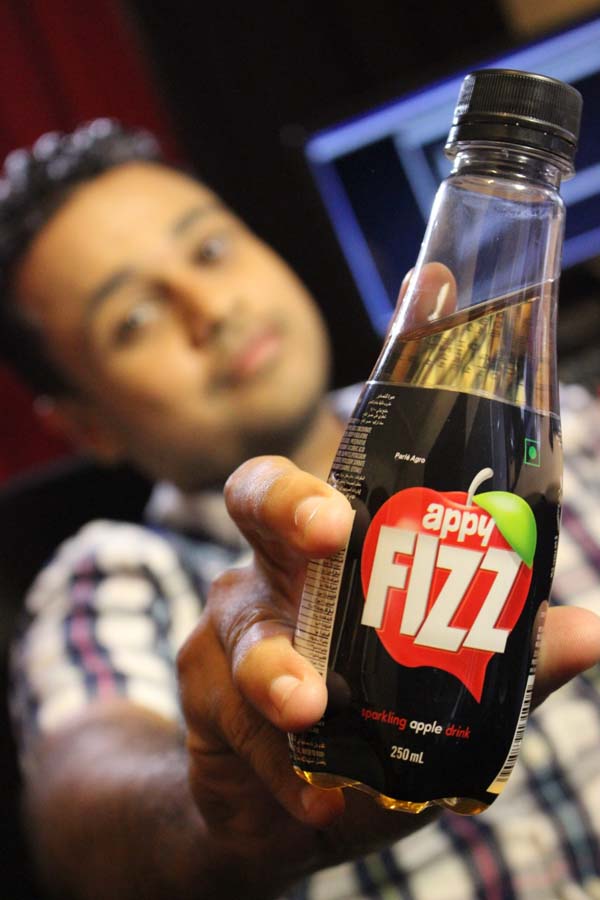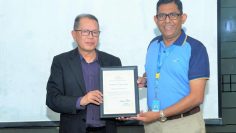
Hatton National Bank epitomizes the essence of a Sustainable Business
Sustainability is at the very core of Hatton National Bank’s corporate strategy, inspiring it to create both social and corporate value. The growth of Hatton National Bank (HNB) has included a strategy of supporting the Small and Medium Enterprise (SME) sector, enabling it to make a valuable contribution to the nation’s macroeconomic goals of reducing the geographical disparities in income distribution and achieving financial inclusion.
HNB has cemented its credentials as the pioneer and an industry leader in providing financial inclusion through rural entrepreneurship creation by offering its 25-year-old premier product ‘Gami Pubuduwa’ and the acquisition of ‘HNB Grameen’ recently. Providing assistance to start micro industries, succeeding the micro entrepreneurs to the SME and corporate levels through financial support, offering guidance through workshops and widening their market opportunities have created many success stories. Its vast island wide network of 252 branches has also helped in direct and indirect employment generation, making HNB an integral part of empowering and enriching many rural communities across the country.
Ms. L Chiranthi Cooray – Chief Human Resource Officer – HNB comments, “The Bank and all our employees are emotionally invested in our commitment to serve the nation. We operate even in segments where we have small margins where we make a positive impact to uplift people from the grassroots and scale up. We are passionate about our environmental and social projects and make sure they have long-lasting value. That said we are also proactive in times of disasters, such as the recent flash floods in May and the floods across the borders of our country and in the Indian sub continent where we contribute generously. We have witnessed first-hand our sustainability projects touching many lives and this only serves to strengthen our commitment further.”
The Bank practices product responsibility in a dedicated manner. Each new product is fully tested and evaluated for suitability and undergoes a rigorous assessment for compliance in addition to statutory compliance testing and validation to the Central Bank of Sri Lanka. The product development committee plays a key role in evaluating how well new products and services and value propositions are aligned with customer needs and the degree of compliance with regulatory requirements to ensure that customers are treated fairly and their rights are protected.
HNB has also pioneered an initiative to promote Sustainable Banking to the financial institutions in Sri Lanka and 18 Sri Lankan banks have accepted adherence to the sustainable banking principles developed for Sri Lanka. Further, many international banks operating in Sri Lanka have pledged their support in implementing these principles although they have restrictions in signing local documents.
Phase II of this project would involve developing the policies and procedures in the line with principles agreed and training and awareness creation amongst the banks with the objective of moving towards uniform environmental and social management systems across the industry.
Extending its sustainability scope further, HNB is committed to granting loans to finance renewable energy projects, energy efficiency and clean technologies. It has become the second-largest lender to hydro power and is evaluating more opportunities in wind and solar power projects. The Bank also supports energy-efficient construction and sustainable energy projects
Moreover, the Bank provides advice to customers on how to improve their environmental sustainability in the areas of enhancing energy efficiency, usage of renewable energy, rainwater harvesting, establishment of green belts around their premises, removal of invasive species from the customers’ lands and so on.
The Bank considers long term relationships with all its stakeholders a strategic imperative, and thus, elevating the larger community is a priority across the Bank. It is engaged in a variety of impactful projects that enhance the community and the environment. Over 40,000 Sri Lankans suffer from Chronic Kidney Disease of unknown etiology (CKDu) and the urgency of the situation has spurred HNB to source good quality drinking water for the school children in the CKDu endemic areas. Water purification plants with Reverse Osmosis (RO) Filters have been installed in many schools in Anuradhapura, along with clean water storage tanks and plumbing systems. It conducts awareness programs on safe drinking water and hygiene, and has donated water purifiers to the General Hospital of Mannar, a district with limited accesses to purified water.
The staff of HNB have taken a green pledge and the Bank has taken long strides in 2016 towards enhancing sustainability by way of energy efficiency via investments in solar power, paper efficiency and environmental and social responsibility. Under its environmental sustainability ‘HNB green pledge’, the Bank has adopted a multi-pronged approach: to promote the paperless office concept; to protect trees by adopting solar power at 35 branches; an Environmental and Social Management System – ‘Green leaf’ to minimise the impacts to the environment by building its award winning ‘green buildings’; and e-banking.
Under its CSR pillar ‘Care for Nature’, the Bank has funded a project to clean the garbage at the Adams Peak (Sri Pada). The Bank believes that this engagement of pilgrims in the cleaning will create a massive attitudinal change in visitors to maintain the cleanliness of public locations. Renovations were carried out at the Indikatupahana Rest Room (Ambalama) which is the topmost rest room along the path to Adam’s Peak, with the financial assistance of the Bank. The Bank has funded this project to provide safe drinking water and sanitation facilities to the pilgrims.
HNB continues support to the cancer counselling centre, which it established in 2007 in association with the Maharagama National Cancer institute, the first of its kind in Sri Lanka to offer professional counselling services to patients as well as family members to overcome the trauma of being diagnosed with cancer. The HNB Sustainability Foundation took over the entire maintenance costs of the counselling centre in 2009, and over 1,000 people have been counselled to date. HNB set up a similar unit at the Teaching Hospital in Jaffna in 2011.
HNB has also partnered with the National STD/AIDS Control Programme which is aimed at HIV prevention and maintaining current low HIV prevalence in the country by promoting public awareness and HIV testing. This project also promotes enrolling antiretroviral treatment for those living with HIV to live a healthier and enhanced life. HNB has also taken several steps to make the society and also its staff members to be aware of HIV/AIDS.
Moreover, the Bank liaises regularly with partners to carry out its CSR activities. In 2016, it sponsored the World Wetlands Day Art Competition organized by the Central Environmental Authority, Department of Wildlife Conservation and the department of Education, in view of creating awareness among school children in the country. The HNB Sustainability Foundation has extended its support to protect Wetlands in the country through removal of invasive species including the thorn ‘Prosopisjuliflora’ in Bundala Ramsar Wetland in the past. It is also focusing on preserving critical habitat for migratory birds in the Mannar area.
One of the bank’s dynamic educational initiatives, Nena Pubuduwa School Libraries and ‘Donate a Book’ campaign is aimed at uplifting basic resources and infrastructure at disadvantaged rural schools. The initiative commenced with a target of assisting 100 schools with libraries and today as of now has supported 200 schools. HNB’s efforts include the renovation of buildings to set up libraries and donation of books and furniture. The libraries programme has helped to create reading opportunities and enhance skills for over 50,000 children across the country. The bank is working closely with the Asia Foundation to provide children in rural areas with a variety of latest English books on various topics.
Since HNB’s inception as Hatton Bank in 1888, the Bank has been strongly, silently driving projects for a sustainable impact on the lives of the communities it operates in, providing all stakeholders opportunities “to partner their progress”.






